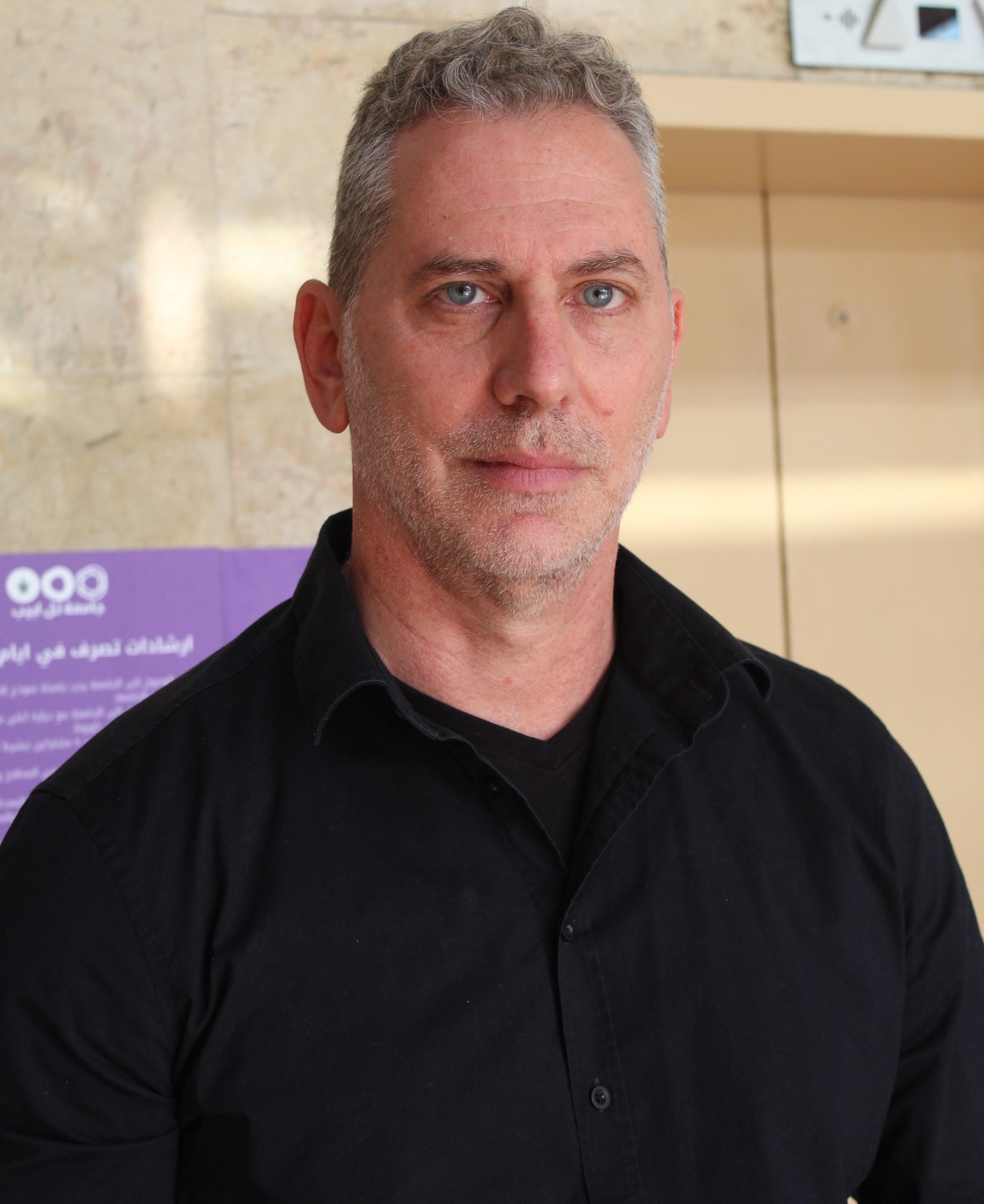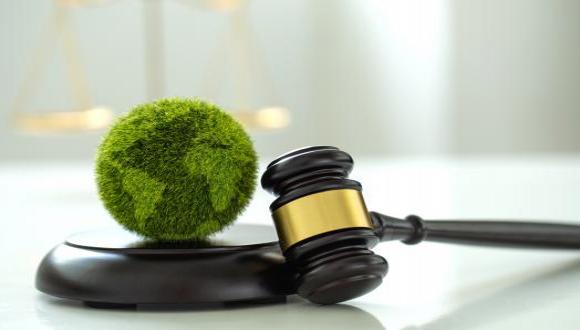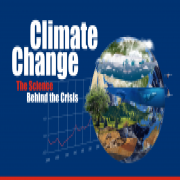How to create change?
A Petition to the Supreme Court by the Environmental Justice Clinic
In September 2023, the Environmental Justice Clinic at Tel Aviv University filed a petition to Israel’s Supreme Court on Israel’s greenhouse gas emission reduction targets. We met with the clinic’s supervisor, Attorney Dr. Eran Zin, to discuss the climate crisis and the role of legal action in the systemic changes required.
Written by Dr. Shula Goulden.
For those who are not familiar, tell us a bit about yourself and the Environmental Justice Clinic.
The Clinic for Environmental Justice and Protection of Animal Rights is part of the broader clinics program in the Faculty of Law. It is essentially a course that combines theoretical learning and practical work for students in the field of law, with the goal of advancing social and environmental issues. In addition to promoting legislative proposals and publishing policy papers, another key tool we use is petitioning the courts. This includes petitions against the state, in cases where we believe it is not taking necessary action, such as not fulfilling international commitments, or engaging in actions believed to be illegal or unconstitutional, such as violating human rights. In recent years, with the significant impact of corporations on the environment, we realized that we need to expand our work to address the work of corporations as well. For example, by filing civil lawsuits for compensation of personal injury due to air pollution.
I joined the clinic ten years ago after working in the same field at another institution. Originally I come from an urban planning and social justice background, and over the years I moved further into the field of environment and law. In recent years the clinic has also expanded to include animal protection, based on an ecological perspective that in order to preserve nature we also need to protect animals. Att. Amnon Keren is responsible for the work on that topic, and in certain cases, including climate change, we integrate both fields.
What is a "climate petition," and what led you to address this issue?
For those of us working in environmental law, it is clear that climate has become the “hottest” topic. Around the world, thousands of lawsuits have been filed on various issues — requests to governments to act to reduce greenhouse gas emissions, lawsuits against corporations to reduce emissions, and even compensation for damages that have already occurred. For example, a Peruvian farmer sued a German electricity company because a melting glacier flooded his village.
It’s a process, and very few cases have succeeded, but some of those have been very successful, such as a large lawsuit against Shell, the oil company, demanding it reduce its greenhouse gas emissions. This was a landmark lawsuit filed in the Netherlands against Shell's parent company, which oversees hundreds or even thousands of subsidiaries. The case is currently under appeal, but the court’s first ruling mandated that they reduce emissions by 45% by 2030.
The legal arena has become a key battleground in the fight against greenhouse gas emissions worldwide. Unlike the work of politicians, whose vision is often short-term and geared toward the next election, legal action demands a long-term perspective, including consideration of future generations and people who don’t have the right to vote yet, or haven’t even been born. Unless we’re talking about politicians are visionary, long-term thinkers with an understanding of what is at stake, we don't tend to see enough action. While the international arena has progressed on some agreements, such as the Paris Agreement, the process is still too limited and too slow. Meanwhile, taking action through the courts, where issues are examined professionally and decisions are made, can sometimes be a more practical approach. While petitions take time, they can sometimes be faster than the action of politicians. For example, Israel has been trying to pass a climate law for many years. There has been a lot of talk about it, but the law hasn’t passed. Even the proposals being pushed are compromises that are not good enough, in my opinion*.
Turning to the court is also significant in terms of public discourse. You can put issues on the agenda that otherwise wouldn’t be discussed. If you petition the government, for instance, you compel it to provide answers, forcing it to decide whether it will advance legislation and, if so, which legislation. In various countries around the world, including in India, the Netherlands, and Germany, there are significant climate-related lawsuits that are ongoing. Every time such a case is filed in one place, it affects the discourse in other places. If I am here in Israel and read a ruling in India, I can go to an Israeli court and say, "Look at this argument, it’s also relevant for us." These examples have been helpful to us in preparing our petition.
How did the idea of filing a petition in Israel come about?
It first of all followed rulings in the Netherlands and Germany demanding that governments take more rapid action to reduce greenhouse gases. In Israel, we only have government decisions, but no legislation because the climate law has not yet passed. The government decisions and the proposed climate law set a very low reduction target compared to what’s been proposed by scientists worldwide. Therefore, we began to examine whether we could apply the international example to Israel: could we demand constitutional requirements based on the basic laws? Is there a failure here in the fulfilment of the state's obligations toward its citizens? We saw that there was indeed room for legal action.
Fortunately, we enjoy good collaboration with the "Youth for Climate" protest movement, that works with the "Green Course" environmental NGO. Together, we conducted research and approached the government with a request for a change in policy. The request was passed between different government offices and was ignored. We therefore had no choice but to file a petition with the court, based on international research on climate change. We see that climate change trends are worsening at a faster pace than expected, and that we must act as quickly as possible. This includes accelerated melting of glaciers, slowing of ocean currents which could have severe consequences, increasing heatwaves, and more. Here in Israel, we’re used to the forecast everyday that it will be "hotter than usual," but what we don’t understand is that the "usual" has changed. The usual has become heatwaves which are hotter and also longer. Even Israel’s meteorological service forecasts more intensity in climate changes. People may think that three degrees Celsius isn’t much, but it’s important to remember that this is an average increase, and as such it’s extremely serious. It will be very difficult to live here under these conditions.
While we are already feeling the changes and reading all of the scientific reports, even before the war the state wasn’t doing enough and its action on climate change is just stagnating. It’s not just me, the “critic” from the law clinic saying that; the State Comptroller has said the same. The state isn’t acting to reduce greenhouse gases nor is it preparing sufficiently for climate change. Some people say that Israel is a small country with minimal impact on global warming, but the answer to that is twofold. First, we are no longer that small—a country of 10 million people with a developed economy and high rate of electricity, fuel, and product consumption. Moreover, if every country says, "We are small," the global problem will continue. That point was also emphasized in the Paris Agreement: we must act locally to have an impact globally. Based on that understanding, we realized that we had to do something, and our tool is to approach the courts. There are many ways to act—public advocacy, research, advancing legislation in the Knesset (we have also been involved in promoting a different climate bill)—but filing a petition to the court is the most efficient way. We will wait and see what the court decides.
What does the petition actually demand?
Looking at the court rulings from around the world, we see that the courts rely on scientific consensus because there are already vast amounts of research on climate change. We used findings from the Intergovernmental Panel on Climate Change (IPCC), whose reports are based on the opinions of hundreds of scientists and surveys of tens of thousands of scientific articles. Among other things, we know that to prevent the global average temperature from rising by more than 1.5°C (compared to pre-industrial levels), and to avoid an increase of two degrees, which is the target set by the Paris Agreement, all countries must reduce greenhouse gas emissions by about 43% by 2030. Israel currently proposes a much lower reduction. It seems that we won’t meet the 1.5°C target, but we don’t want to reach the two-degree threshold. It’s important to know that every tenth of a degree increase has far-reaching consequences, intensifying climate change and extreme events.
Since Israel is not planning to commit to the global target at the agreed-upon level, we are demanding from the court to order the state to reduce greenhouse gases at the globally-accepted rate. Legally, our case includes three main arguments: first, that Israel’s basic laws obligate the state to protect the right to life and health. The state itself has published studies showing that heatwaves, which are now warmer and longer, are already harming people’s health in Israel. A study by the Ministry of Environmental Protection and the Ministry of Health pointed to hundreds of people whose lives and health were affected by prolonged heatwaves, and this research is already a few years old. The second argument addresses the state’s obligations to future generations. Israeli legislation includes various future obligations, such as in the Clean Air Act, which states that we must act today in a way that does not deplete the resources of future generations and allows for reasonable living conditions. As things stand we are not doing that. Therefore, we believe there is a constitutional obligation for the state to reduce greenhouse gas emissions to ensure the livelihood of future generations in Israel. The third argument centers around whether we have the right in Israel to decent environmental quality. This has been a long-standing legal debate. We argue that because climate change can severely impede human rights, the right to environmental quality is indeed a constitutional right that must be protected. We will see if the court accepts this argument. We certainly believe it’s time to recognize the right to a decent environment in Israel as a constitutional right, so that if a law contradicts this right in the future, the court will be able to rule that the law is unconstitutional and therefore invalid.
The petition was filed in September 2023. The court ruled that the state must submit a response by November 2023. Due to the war the state quickly requested an extension, and since then, further extensions were granted in January, March, and May 2024. At that point, we expressed our opposition to further extensions. We made the point that 2023 was already the hottest year on record at a global level, and that we can’t wait any longer. The court granted a final extension to the state but also set a hearing date for September 25, 2024, with the state being required to submit its response 21 days prior to the hearing. The state’s response was submitted on September 12th but the hearing has now been postponed to January 2025.
Are you optimistic?
It’s not an easy decision for courts to intervene on this topic. I assume the state will argue that this is a policy issue, not a judicial one. These are complex questions with significant economic implications and impacts on the entire economy. That’s why we’re not telling the state what to do or how to reduce emissions, but that it must reduce emissions. We don’t have the professional knowledge to saw how it should be done; it’s truly complicated, but the state has the tools to do it. Our argument is that the state needs to meet the requirements of emission reductions, given that it has committed to them internationally, and that this is also its obligation to its citizens.
The state is also likely to say that a Climate Law is being discussed in the Knesset, and so we need to see what the law says as it may still change (currently, the law proposes only a 27% reduction). It’s also possible that the court will say the petition is premature. From our perspective, that’s a delay tactic. We’ve been talking about this law for years. It’s now passed a first reading and is in committee, with the Knesset on break for several months, and there’s no end to it. Therefore, just submitting the petition already forces the state to think about it, discuss it, and respond to the court. Even when they give answers, they sometimes evade or try to find ways to buy time, but this raises the issue, and we will keep pressing.
At the same time, we’re trying to think about other ways to develop legal action on climate change in Israel, for example against corporations, but this is more complex and requires further legal investigations. We’re following what’s happening around the world and in Israel. For example, the Ministry of Environmental Protection publishes and quantifies the externalities (costs that are not calculated in the company’s expenses, like pollution costs) of greenhouse gas emissions from large corporations in Israel, such as the Electric Corporation, refineries, and gas drilling. The fact that these are called “negative externalities” means that the cost is passed on to the public. As economists today can state how much this costs, this could open the door to legal action. It’s not enough of a basis with which to approach the court, but it does give an indication of the costs the public bears instead of the corporations, who ultimately profit from the pollution.
You talked about the effectiveness of legal tools in the current reality. If you look at the entire system, what would ideally happen to accelerate the response to the climate crisis?
Ideally, we would have governments committed to reducing greenhouse gases and preparing for the climate crisis. That’s relevant not only for the current government but also for previous ones. In Israel they almost never talk about the issue, and when they do, the focus is on technological solutions, promoting initiatives in food-tech and clean-tech. For me, this is a bit like burying our heads in the sand. There are more basic things we can do, and we can do them much more quickly: Israel is blessed with sunshine for solar energy production. We could do much more to transition to alternative energy instead of relying on fossil fuels like natural gas. Just recently, they approved the development of additional gas fields for export. In my opinion, this is a pattern of thinking from the 20th century, not the 21st, and it’s poor judgment. When the government acts in this way, I believe mistakenly, one of the places we can try to redirect it is through the courts, but it can’t end there. It has to come from public demand and debate. Especially over the last year, environmental discourse has not been given enough attention, and it’s not on the agenda. Over time we may all come to realize that we have no choice but to address the issue of climate change. I just hope it won’t be too late.
Can you tell us about the collaboration around the petition?
This was quite a pioneering case. There have been youth petitions around the world, but we added the older population as well. Some of our petitioners are teenagers who filed the petition along with their grandparents, who are also petitioners, claiming that the elderly population is the most affected by global warming, as they are exposed to higher risks. Although we were among the first to file this type of petition, not long ago a judgment was issued in the European Court of Human Rights following a lawsuit by elderly women from Switzerland who claimed that worsening heatwaves harm their rights to life and health. The court accepted their case. We hope this will have an influence on our case as well.
It was a rewarding experience working with the youth; they’re committed to the climate field, working day and night on environmental activities, participating in Knesset debates, engaging in activism against politicians, writing articles and giving interviews. For a moment, you forget they’re teenagers. They have a well-established worldview and determination, which gives me some optimism for the future. Although the court petition was filed by only dozens of people, about 1,000 people signed on a public petition that we attached. Hundreds of those who signed are teenagers, so it’s a bit complicated for them to file a court petition, but their desire to take part reflects the commitment of hundreds of teenagers.
What is the significance of such a process being run by a clinic within a university? Is there something unique about what you do?
This could have happened through other organizations, but the advantage of a clinic is that we’re a kind of laboratory. Sometimes we handle legal cases that require a specific kind of research or trial-and-error process. The fact is that there are many environmental organizations, and none of them took on this case. We have two other partners, Attorneys Yossi Wolfson and Assaf Fink, who are also part of the process, and that’s how the collaboration with the youth movement came about. There’s something unique about a clinic that sometimes promotes cases that are outside the usual scope. We’re less obligated than other organizations to show success or results, and there’s more freedom in how we operate, as well as having students who can spend time conducting preliminary research.
Working with the students is truly special—they are a young, talented, energetic group who bring fresh insights. We see them as ambassadors: these are outstanding students who later on will be in key positions in the courts, large legal offices, the prosecution service, and even as judges. In the clinic, they’re exposed to environmental ways of thinking. Some come to us after engaging in environmental work while others have never encountered the issue before. As there’s no area of law that hasn’t been touched by environmental considerations, so we hope that this exposure during their time in the clinic will influence their future work and decisions as lawyers.

Att. Dr. Eran Zin
The Clinic for Environmental Justice and Protection of Animal Rights
Faculty of Law, Tel Aviv University
Image Credit: Shahar Shahar, Tel Aviv University Spokesperson
*The interview was conducted before the renewed debates in the Knesset in recent months on the current Climate Law proposal.
If you haven’t joined TAU's Climate Initiative's mailing list to get the newsletter directly to your inbox, please join here.





